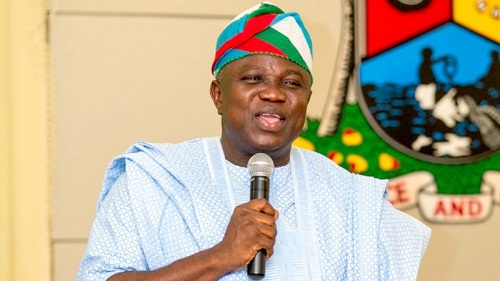This post has already been read 1571 times!
The outgoing Lagos State Governor Akinwunmi Ambode seems to have learnt a lot from his failed attempt to pick the All Progressives Congress (APC) ticket for a second tenure.
The governor, who spoke to State House correspondents yesterday after meeting with President Muhammadu Buhari, said he used to see himself as a technocrat, but the time he spent in office has changed his perception.
Ambode said: “You see, every politician learns every day. The fact remains that I came in as a technocrat. So, I use to call myself a techno-politician, but I think I am wiser now. I am more of a politician than a technocrat.”
On his visit to Villa, Ambode said it was just to say thank you to the President for his visit Lagos, where he (Buhari) inaugurated some projects.
“We did our best and most importantly the projects we did were people-friendly and people-centred. I just think a lot more people have enjoyed the benefits and dividends of democracy than we actually met it. And that gives me joy that we were able to touch lives.
“Wherever you find yourself, just make a positive difference to people and Nigerians. That is the whole essence of service. I’m grateful that I had that opportunity.”
Ambode will spend the last days of his administration in inaugurating multiple projects embarked upon and completed by his administration within the last four years, including the new Senate Building of Lagos State University (LASU).
Commissioner for Works and Infrastructure Mr. Ade Akinsanya stated this in a statement yesterday.
According to him, the first set of projects to be commissioned are the Ilaje Road and Bariga Waterfront Jetty, as well as car park designed to enhance intermodal transportation and improve connectivity from the Mainland to the Island and the Ikorodu axis. Seven new world-class ferries would also be unveiled.
“It is pertinent to note that the Lagos State Government has procured seven ferries, five of which will be commissioned and they are named after monumental events, notable towns and Lagos deities as a reminder of our historical values. The names are – Itesiwaju Eko, Ipakodo, Alausa, Adamu-Orisa, Ejinrin, Eko-Akete and Zangbeto. These are ferries that the citizens will find comfortable, safe as well as affordable.
“Another project scheduled for commissioning is the new Senate Building of the Lagos State University (LASU) in Ojo, which is yet another confirmation of the commitment of Governor Ambode’s administration towards ensuring meaningful growth in the educational sector.
“This project will change the landscape of the university and will remain another legacy project of this administration,” Akinsanya said.
He added that as a follow-up to the Lagos Theatre in Oregun commissioned by President Buhari, two additional theatres would be unveiled at Igando and Epe. That of Badagry would be commissioned at a later date, just as he revealed that a number of road projects would also be inaugurated.
“The construction of Agric Access Road at Egan in Alimosho Local Government is to ensure connectivity. Specifically, it will provide access to Egan Igando Housing Estate, complement government investment in the project, achieve the economic transformation of the communities and ameliorate the suffering of the people of Egan-Igando.
“In the Lekki axis, another project slated for commissioning is the upgraded/dualised Bisola Durosinmi-Etti Road/Hakeem Dickson Road and would serve as a bypass to connect the Lekki Ikoyi Link Bridge and also bring about reduction in travel time. This road is expected to further boost trade and commerce, open up this area to more investment opportunities and increase property values,” Akinsanya said.
Besides, the commissioner said in view of the high premium placed by the state government on storage and archival, a state-of-the-art facility in the Central Business District, Alausa would also be inaugurated by the governor.
Since 2015 till date, the state government has undertaken rehabilitation of 342 roads and construction projects amounting to 365 kilometres of single carriageway and 5.3 kilometres of bridges.
No fewer than 125 public buildings, comprising of general hospitals, public centres, skills acquisition centres, high courts/magistrate courts, fire stations, police command, youth centres, multi–level facility/car park and a multipurpose centre across various local government areas were also executed.
[The Nation]



